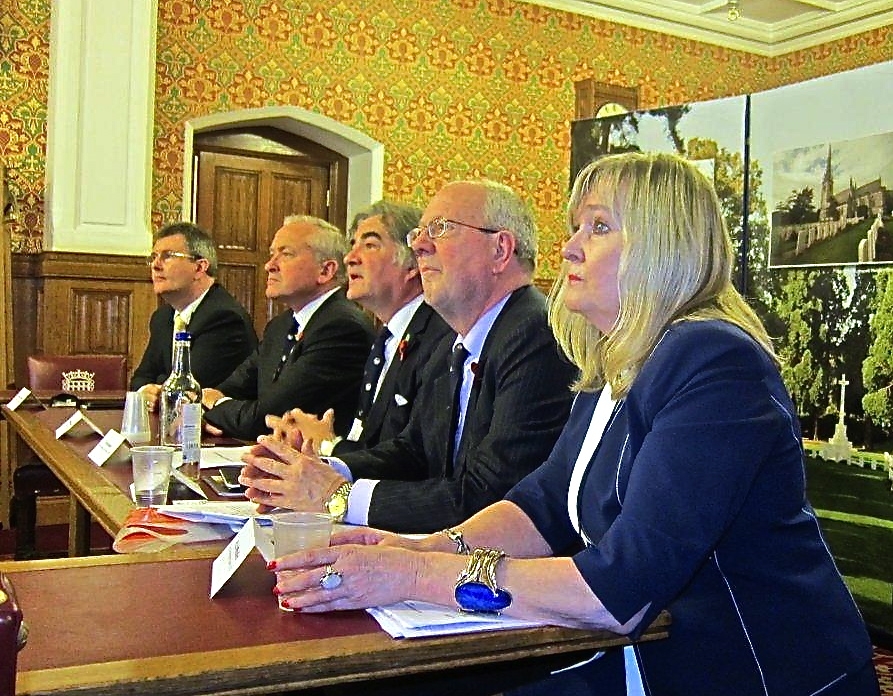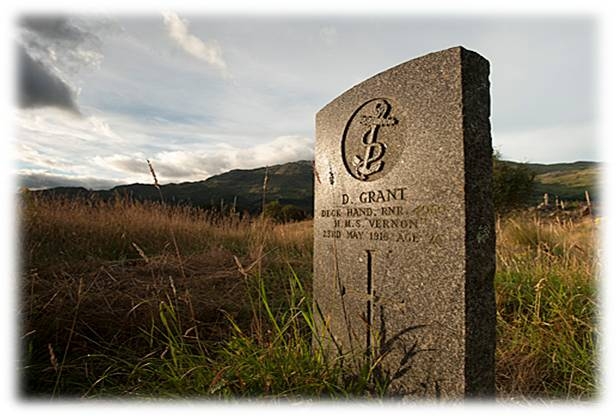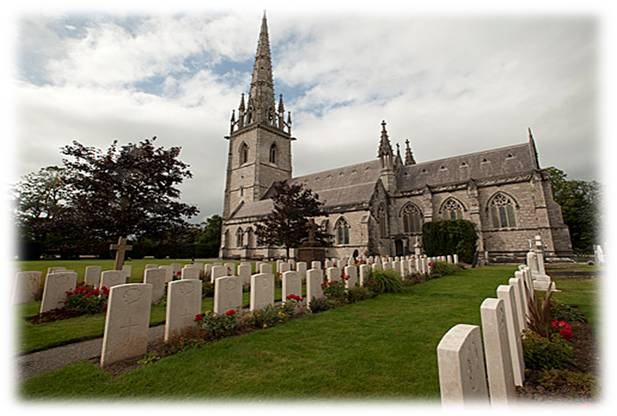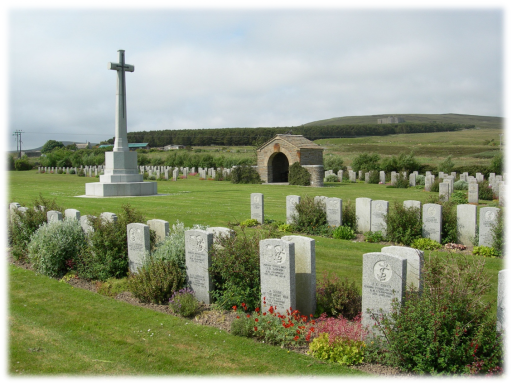The Commonwealth War Graves Commission has launched an initiative to raise public awareness of tens of thousands of war graves in its care across the UK.

Jeffrey Donaldson MP; Alan Pateman-Jones, Director-General, Commonwealth War Graves Commission; Colin Kerr, Finance Director, CWGC; Lord Faulkner of Worcester, Chairman of the Parliamentary All-Party War Heritage Group; Liz Woodfield, Head of Information Systems, CWGC.
The CWGC’s work is most often associated with the immaculately maintained cemeteries to be found on the former battlefields of mainland Europe, or in the Middle East, North Africa and the Far East.
But as Centenary News reports from a press conference at Westminster, the Commission is urging the people of Britain not to forget the graves and memorials to be found close to home. Speaking at the House of Lords on November 5th 2013, the CWGC’s Director-General Alan Pateman-Jones said: “What this is all about is trying to tell people that within a few miles of where you live, there are Commonwealth War Graves and they are just as worthy of you going to see them as the ones in Belgium and France.”
13,000 locations
More than 300,000 Commonwealth service personnel who died in the two world wars are commemorated in the UK, more than half of them casualties of the Great War. Many died in military hospitals while being treated for their wounds, or they fell victim to the flu pandemic which claimed millions of lives globally as the conflict drew to a close.
 St. Finnan’s Isle Burial Ground, Scotland, (Isolated grave)
St. Finnan’s Isle Burial Ground, Scotland, (Isolated grave)
Their graves and memorials can be found in 13,000 locations spread throughout the British Isles. They range from individual headstones in remote countryside to distinctive larger groups of graves in big urban cemeteries run by local authorities.
Speaking at the press conference, the Commission’s Finance Director, Colin Kerr, said these had now been mapped for every UK parliamentary constituency and the information was being made available to MPs as part of the campaign to draw attention to them. In carrying out the project, the CWGC drew on expertise from members of In from the Cold, a voluntary organisation which has been searching for missing casualties of both world wars since 2006.
Sites at risk
The CWGC is particularly keen to highlight the need to care for war graves that are considered to be at risk because they are in cemeteries that have in effect been abandoned to nature, or are located in closed churchyards.
Mr Kerr, who is overseeing the Commission’s Centenary preparations, said: “What we have been doing is to have an initiative to return those sorts of sites to where they need to be.” Almost 20,000 headstones have been renovated over the past two years as part of a programme which has succeeded in improving the vast majority.
But Mr Kerr warned that a “fair number” of war graves were still very difficult, or even physically impossible, for the Commission’s maintenance staff to access. He declared:
“Wouldn’t it be great if there was encouragement to MPs to work with their communities to actually take ownership of these sites and love them and care for them so that it doesn’t need our guys with strimmers going through 10-foot high grass to get to our sites.”
 Marble Church (St. Mary’s Church), Bodelwyddan, Wales
Marble Church (St. Mary’s Church), Bodelwyddan, Wales
Parliamentary backing
The CWGC’s campaign has the backing of the all-party Parliamentary War Heritage Group at Westminster, which hosted the press conference at the House of Lords. Jeffrey Donaldson, the Democratic Unionist MP for Lagan Valley in Northern Ireland, said he had no doubt there would be immense public interest in rediscovering the UK’s war heritage during the Centenary period.
“So much of that will tend to focus on where battles took place, ” Mr Donaldson acknowledged. “And yet many of the men who died are here in the UK and we want them them and their place of rest to be given the same respect and honour.
“I have no doubt that these are places people will want to visit and there is an education programme that we are encouraging right across the UK for schools to visit war memorials and now through the work of local MPs, encouraging schools to visit war graves as well and pay respect to the men who sacrificed their lives.
“I hope that in providing this information to my parliamentary colleagues that they will be encouraged, where there may be war graves in their constituency that have been neglected, that ways will be found to address that in collaboration with the civic authorities and indeed churches and others who may have a responsibility.”
Posted by: Peter Alhadeff, Centenary News
